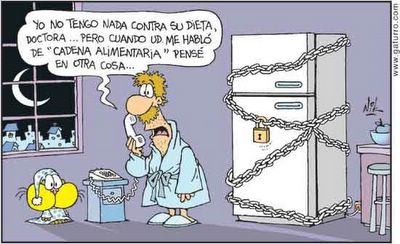Por María Pastora Sandoval Campos
(Publicado en Oh my News International)
(Publicado en Oh my News International)
Chile has changed in recent decades. Women, virtually powerless for years, have conquered a piece of the government, and some have directed whole ministries. Two of these women, Michelle Bachelet and Soledad Alvear, are the first women in Chile's history to run for president. Both from the coalition, Concertacion, they are running for the party's nomination to be decided in a primary election July 31.
Because time is short before the election, the debates have been planned so that the women would present their visions for running the government. Though they hail from the same political group, they express the values of different parties: Alvear has the support of the conservative Christian Democracy Party (PDC), while Bachelet of her Socialist Party (PS), the Party for Democracy (PPD) and the Radical and Social Democracy Party (PRSD).
The women decided the contest should not "be a war," but current left-leaning President Ricardo Lagos some time ago insinuated he favors Bachelet. But because of the recent division in the coalition, some observers say the candidates are making a show of "fair play." Wednesday, April 27, was their first television debate.
Who Are They?
 | |
 Michelle Bachelet wants more social dialog in government. In this photo she is meeting voters in the north of the country. Michelle Bachelet wants more social dialog in government. In this photo she is meeting voters in the north of the country. | |
| ©2005 michellebachelet.cl |
Bachelet was a leader of the Socialist Youth during the government of Salvador Allende. After the Pinochet military coup of 1973, her father, Alberto Bachelet, an Air Force general closely aligned with Allende's government, died as a result of torture. Bachelet and her mother were detained by intelligence officers in Chile, before being forced into exile in Australia and then East Germany. Bachelet returned to Chile in the 1980s.
Following medical school and various posts in the government, Bachelet worked for Lagos' presidential campaign, and following his election in 2000, was named health minister. In 2002 she became the first woman in Chile to become defense minister. If elected president of Chile, she wants to reform the pension system and pre-school education.
 | |
 Soledad Alvear talks with poor people about her government plan. Soledad Alvear talks with poor people about her government plan. | |
| ©2005 soledadalvear.cl |
Alvear led a student movement against the military government, and began her own government career in 1990, when she became minister for women's affairs. During her tenure she initiated reform of the country's criminal justice system.
Like her rival Bachelet, she also worked for President Lagos' campaign and became the first woman to be named foreign relations minister. Under her watch, Chile signed trade agreements with the United States and the European Union.
Her platform includes improving wealth distribution in Chile, abrogating the Copper Law, which finances the armed forces, and providing free education for all citizens.
The Debate
The meeting took place in Hualpen, Concepcion, 500 kilometers south of Santiago. Of the five journalists who attended the debate, one of them was from a local television station, an attempt to engage provincial voters in this very centralized country.
Though both candidates appeared tense at first, it was Alvear that was asked the hard questions. Reporters brought up accusations by the opposition that a government contract her husband had landed for public defense work was unlawful.
"It is not an irregular judicial or ethical problem," Alvear answered. "My husband is a correct and honorable person. We have lived in the same house our whole lives ... I am the candidate. Attack me if you want. Do not attack another."
When asked why her husband or her party's leader were not in attendance, Alvear bristled.
"I think your question is a little chauvinist," she said. "If I were a man you would not ask this question."
About the president of her party, Alvear said, "I do not feel alone," explaining that although he was travelling on business, past party leaders were in the audience.
Another question addressed her poor survey ratings, to which she responded she was not worried about winning the primary.
"I like challenges. I had to take a lot of risks in my career and nobody supported me," she said. "For example, for reform of the penal process just one minister agreed, and nobody believed in the trade agreements with the United States and Europe. I believed in them and I did it."
Asked about her position on taxes, Alvear said she wanted to adjust them so that middle class people can afford to pay them.
Alvear emphasized her commitment to the middle class, who are provided very little in Chile, especially in the way of funding for higher education, and said she wanted to form a "middle-class government."
Damage to the environment by businesses was also raised. "I want to create an independent bureau, like the Central Bank, independent of the government, to watch out for technical and ecological problems," Alvear said.
"If a company does not behave according to the law it will have to be shut down."
She was asked about her similarities to Joaquin Lavin, the candidate of the conservative Independent Democratic Union (UDI), the opposition party.
"I am not the same," she said, describing how she differed with the UDI on issues such as cutting school hours for children who are needed on family farms.
On energy policy, Alvear said it is necessary that Chileans sacrifice some natural sources to provide energy to the country. She said the country needs to think of new ways to get gas, and not rely principally on Argentina.
A question to Michelle Bachelet focused on her erstwhile relationship with a man who was a part of an armed opposition to the Pinochet government.
"That was 20 years ago, so he had his ideas and I had mine. It does not mean I prefer the army's way to get power." Asked if she were a Marxist, she said, "I have my ideas and I do not add a description. I only want a better country."
Answering a question on Chile's vote last year in the United Nations on Cuba's human rights record, she said, "I studied the situation in Cuba, and if I were president -- and if it were necessary -- I would vote against it, like I'd do with all such countries in the world."
On homosexuality, she said that though she doesn't agree to homosexual marriage, she has no problem with having a gay man or woman on her staff.
"To me, what is important is the attitude toward work."
Bachelet said she would not increase taxes, but she would work to improve the way the government distributes money.
"I want to abrogate the Copper Law," she said. "It is not democratic, so we have to find another way. If it is necessary, I will conduct a public debate."
Bachelet made it clear that lowering taxes is not a good solution, but that the situation requires further study.
"We have to improve family income and income distribution in our country, if we want children to go to kindergarten so that mothers can go out to work."
The army pension fund was posed as an issue for the former defense minister.
"We cannot execute a significant change, except to fix some distortions, because if we approve a law about it ... the medicine would be more costly than the disease."
After the Debate
The outcome of the debate is all the rage in the media. According to a headline in El Mercurio newspaper, "Surveys Say Bachelet Wins the Debate," but in the newspaper's online poll people say Alvear was the winner. La Tercera, another important Chilean newspaper, asserted that the candidates set forth poor arguments and that they talked about more about themselves than their platforms.
Four million people watched the debate, but many missed the confrontation, the whole difference between them. People feel the candidates have to be clearer in their positions and accept the risk of being different, before they decide who they will choose July 31.

















